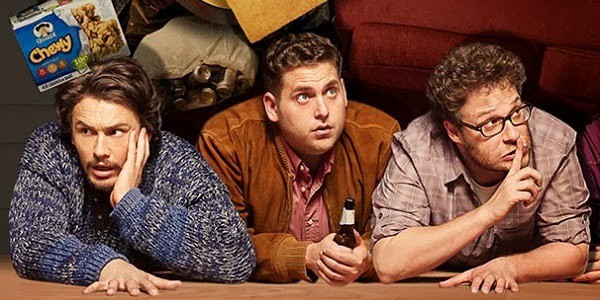This weekend, Washington Post critic Ann Hornaday took a much needed look at the correlation between Hollywood and violence. This is not the first time a critic has taken on the correlation between violence and films. Quite frankly, I’m surprised it doesn’t happen more when there is actual data that shows that violence in films affects behavior. (Remember the good old days when cigarette smoke didn’t cause lung cancer?) But usually when we talk about violence and films, we talk about violence that is committed against women in films, like the umpteen slasher movies where dismemberment of women seems to be the norm. (And TV is not off the hook. For example, here is a Dexter copycat and someone who was inspired by Breaking Bad.)
But what Ann Hornaday does is discuss the impact that the misogynistic Hollywood complex has wrought in our culture. She took a really raw tragedy that has again touched a nerve and asked some thoughtful and much needed questions about Hollywood and how women fit into the equation. These questions are big and dangerous (to Hollywood) and, of course, there will be pushback.
Here are some of her points:
“For generations, mass entertainment has been overwhelmingly controlled by white men, whose escapist fantasies so often revolve around vigilantism and sexual wish-fulfillment (often, if not always, featuring a steady through-line of casual misogyny). Rodger’s rampage may be a function of his own profound distress, but it also shows how a sexist movie monoculture can be toxic for women and men alike.
“Part of what makes cinema so potent is the way even its most outlandish characters and narratives burrow into and fuse with our own stories and identities. When the dominant medium of our age — both as art form and industrial practice — is in the hands of one gender, what may start out as harmless escapist fantasies can, through repetition and amplification, become distortions and dangerous lies.”
Hollywood has created a culture where misogyny rules. She’s not saying anything that’s not true and we all know it. And while we buy 50% of the movies tickets, we spend our time going to see movies about men. We see so many men that many of us can’t even begin to think it’s a problem because that is all we know. Last year only 15% of the top 100 films had a female protagonist and most even fail the wholly inadequate assessor of the Bechdel Test. Hornaday uses male box-office influencers as examples of this bromantic culture, yet several of those mentioned in her piece, namely Seth Rogen and Judd Apatow, have called her an “idiot” on Twitter and have ridiculously conflated their being mentioned in the piece as part of the problem with them being the reason why this very troubled young man did what he did.
Hornaday did no such thing, and by Seth Rogen having a Twitter hissy fit, he has caused everyone — at least in the giant Hollywood media complex — to focus on his aggrievement and not the extremely valid points that Hornaday made. Women are fodder for male fantasies, and never the other way around. But that’s typical in Hollywoodland, where the boys rule and they don’t see anything outside their own point of view.
Methinks that the reason why Mr. Rogen et al are all so upset is that the piece actually did touch a nerve — that is, if they actually read it at all before mainsplaining it away.
Hollywood men are really great about standing up for each other. Count me as #standingwithannhornaday.






